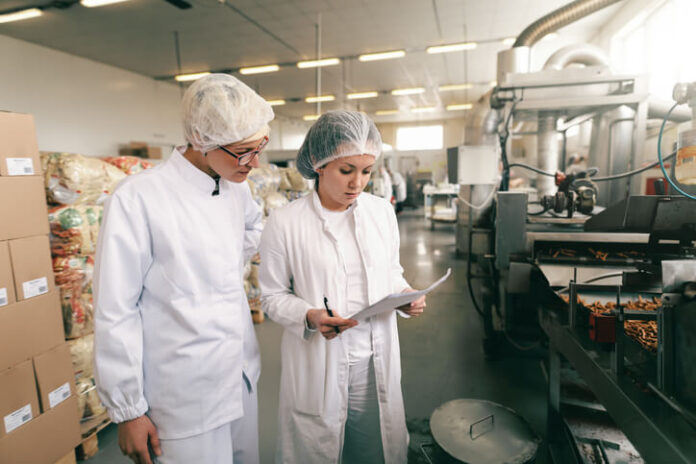Food inspection is crucial in maintaining public health and safety by examining and evaluating food products and their production processes. These assessments ensure compliance with government regulations and standards.
Exploring the significance and strategies of food inspection helps businesses and consumers prioritize hygiene, safety, and overall health. If you want to learn more, read below.
The Importance Of Food Inspection
Food inspection is a vital process for key players in the food production and processing industry. It’s important:
1. To Ensure Food Safety And Prevent Foodborne Illnesses
Food inspection is critical in protecting public health by identifying and preventing foodborne illnesses from contamination by harmful microorganisms, chemicals, or other hazards during food production, processing, and distribution. A comprehensive food inspection system helps detect potential risks, ensuring that unsafe food products don’t reach consumers.
2. To Comply With Government Regulations And Standards
Food businesses must comply with government regulations and standards to operate legally. Food inspectors ensure that these businesses adhere to the rules by conducting regular inspections and enforcing penalties for non-compliance.
3. To Protect Businesses From Legal Liabilities And Reputational Damage
Foodborne illness outbreaks can result in lawsuits, costly recalls, and a tarnished public image. By adhering to food inspection guidelines, businesses can mitigate these risks.
4. To Maintain Consumer Confidence In Food Products
Consumer trust is essential for the success of food businesses. Food inspections help maintain this confidence by ensuring food products meet required safety and quality standards. When consumers know that their food undergoes rigorous inspection, they’re more likely to continue buying from that brand or establishment. This trust can increase sales and a positive reputation for food businesses.
Food inspections are indispensable to the processes of food production and processing. Companies must religiously carry out routine inspections for their benefit, as well as their stakeholders and clients.
Essential Components Of A Food Inspection System
A well-designed food inspection system is critical for guaranteeing the effectiveness of food safety efforts. This process involves the following steps:
1. Risk-Based Food Inspection Planning
An effective food inspection system begins with risk-based planning. This approach involves identifying and prioritizing food establishments based on the potential risks they pose to public health. High-risk establishments, such as those handling raw meat or catering to vulnerable populations, should receive more frequent inspections.
2. Food Safety Legislation And Regulations
Food safety legislation and regulations provide the framework for a robust food inspection system. These laws outline the requirements that food businesses must meet and the responsibilities of food inspectors. Plus, they establish penalties for non-compliance, ensuring businesses face sanctions if they fail to uphold food safety standards.
3. Accreditation And Certification Of Food Inspectors
It’s essential to have competent and qualified food inspectors to maintain the integrity of the food inspection system. Accreditation and certification programs ensure inspectors have the knowledge, skills, and training to perform their duties effectively.
4. Inspection Tools, Equipment, And Technology
Food inspectors rely on various tools, equipment, and technology to carry out their duties. These resources enable inspectors to perform tests, take samples, and gather data during inspections.
Technological advancements, such as remote sensing devices and portable testing kits, have made it easier for inspectors to detect hazards and contaminants in food products, further enhancing food safety.
5. Reporting And Recordkeeping
Accurate reporting and recordkeeping are essential for tracking the results of food inspections and ensuring accountability. Inspectors must document their findings, including any violations and corrective actions required to monitor the performance of food businesses, identify trends, and assess the effectiveness of their inspection programs.
Indeed, food inspection is a systematic process that involves the multiple steps mentioned above.
Strategies For Effective Food Inspections
It’s essential to employ strategic approaches focusing on the following processes to maximize the impact of food inspections. Such strategies include:
1. Risk Assessment And Prioritization Of Food Establishments
A key strategy for adequate food inspections is to assess and prioritize food establishments based on risk. By focusing on high-risk establishments, inspection agencies can allocate their resources more efficiently and make the most significant impact on food safety.
2. Develop A Comprehensive Inspection Checklist
An essential element of an effective food inspection is a comprehensive inspection checklist. This checklist should cover all aspects of food safety, including food handling practices, storage conditions, equipment maintenance, and hygiene, to ensure consistency and thoroughness in assessments.
3. Integrate Technology For Efficient And Accurate Inspections
The integration of technology into food inspection processes can enhance efficiency and accuracy. Digital inspection tools like mobile apps and remote sensing devices can streamline data collection and reporting, allowing inspectors to access real-time information and make informed decisions.
4. Establish Clear Communication And Collaboration
Effective communication and collaboration between food inspectors and businesses are vital for successful food inspections.
Inspectors should provide clear feedback and guidance on addressing any identified issues. In turn, food businesses should be receptive to this feedback and take the necessary steps to ensure compliance. By working together, inspectors and food companies can create a safer food environment for consumers.
5. Ensure Ongoing Monitoring And Evaluation Of Food Inspection Processes
Continual monitoring and evaluation of food inspection processes are crucial for maintaining a high level of food safety. It involves reviewing inspection results, identifying trends, and making adjustments as needed to improve the effectiveness of inspections. Regular evaluations ensure that the food inspection system remains up-to-date with industry best practices and regulatory changes.
If you’re a participant in the food industry, keep in mind the points mentioned above for top-notch food inspections.
Conclusion
Food inspection is vital to public health and safety, ensuring that food products meet government regulations and standards. By implementing effective strategies, food inspection agencies can continue to protect consumers and maintain trust in the food industry.
















